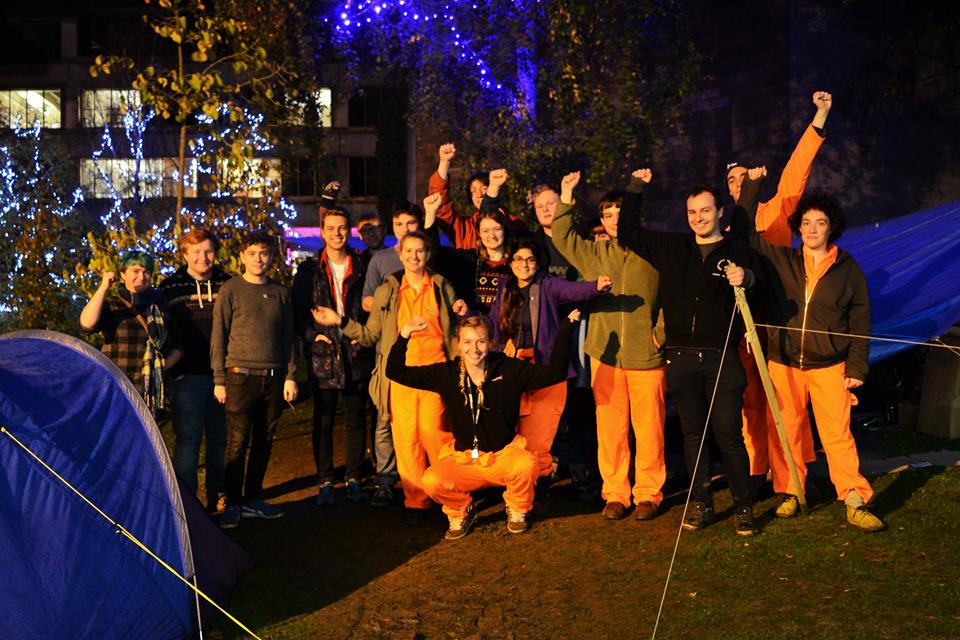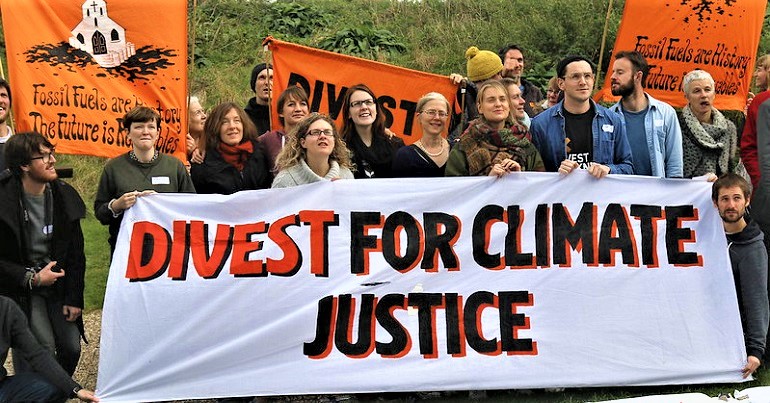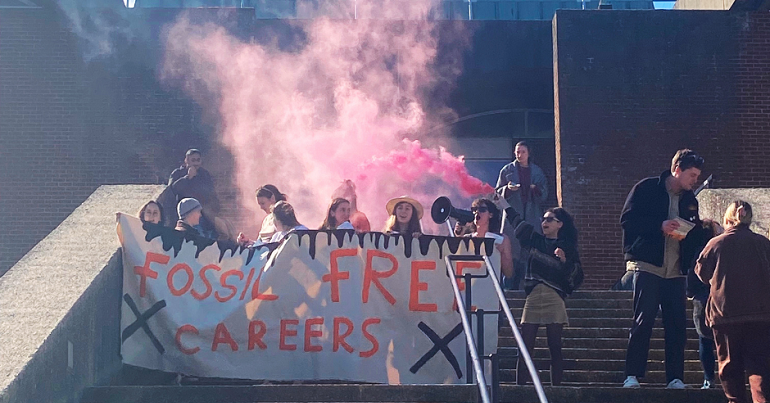Divestment, occupation and an unapologetically radical student movement

I’m an elected Sabbatical Officer at UEA and I recently participated in an occupation on my campus which was the culmination of a two year campaign calling for UEA to join institutions across the world to divest their money from the fossil fuel industry. We occupied for 26 hours, one hour for every £5,000 the University currently has invested in fossil fuel companies. Often, such action would not be supported by elected student officers, and in the worst instances condemned by them.
There is an unwritten rule in the student movement that elected officers, whether they be Sabbatical Officers of Student Unions or Vice Presidents of the National Union of Students, do one type of activism and the grassroots do another. Elected officers are there to lobby University managers or government ministers behind closed doors in grandiose offices, and from time to time begrudgingly and tokenistically take coaches of students to the annual national demonstration. Grassroots student activists will agitate on their campuses, join picket lines of lecturers and admin staff, take direct action and occupy. Never the twain shall meet.
This dichotomy is accompanied by a narrative which has recently been purported by NUS national officers including its President Megan Dunn and Vice President Union Development Richard Brooks in that while protest, grassroots mobilisation and direct action may be fun and exciting, it is not in actuality an effective tool to bring about change, or ‘win for students’. The appropriate way of getting things done, and of being successful in the student movement is to talk nicely with managers and ministers, put out the occasional tweet and then fill yourself with self-congratulatory praise and pat yourself on the back after winning a handful of minor concessions.
Unsurprisingly, this is the vision that almost all newly elected Sabbatical Officers in Student Unions are given, whether it through their induction from right wing bureaucrats and staff members in their own Unions or from the official Officer training programme co-ordinated by NUS.
This portrayal of the role of student activism, and the role of student officers in particular is highly damaging. Not only does it paint one type of action as good and another as ineffective and unhelpful, it also fails to acknowledge that our entire history of political and social change has come as a result of grassroots mobilisation, mass action, protest and movement building. We wouldn’t have won rights for disabled people, the right to strike, an end to slavery, the vote, the removal of Thatcher from office, the hunting ban and countless other things if it wasn’t for people rising up against injustice, and fighting on the streets, in their communities and (importantly) on their campuses. Those victories would never have been achieved through elected officials cosying up to the ruling classes and their lackeys in management positions. Direct action has a long and noble history.
And that is the context in which contemporary student activism sits. In the case of the Fossil Free campaign at UEA we have repeatedly tried to engage with UEA managers over the issue. We have repeatedly entered negotiations, petitioned, lobbied, asked questions in public fora and spoken nicely to University managers, but they have not moved. This is why we entered occupation. It came only as a result of a necessary escalation due to management inaction.
As an elected officer, I have a responsibility to follow students in their activism, whether their final tactic is a petition, a strike or an occupation. To not do so would be to undermine the fundamental principle of why I hold the office that I do, which is that students dictate the action that I take. There should never be a distinction between the appropriate actions and tactics of students at the grassroots and on the ground and their elected officers because the former needs to push the latter.
So why wouldn’t this be seen by my colleagues across various sections of the student movement as the sort of thing that I and other elected sabbatical officers should be doing? If the student movement is to be anything and if the student movement is to win its aims and objectives, it must be bold, it must be radical and it must recognise that escalation and direct action are at times necessary. And that would be a student movement that I could be proud of.
This article was adapted from an article originally published in The Norwich Radical.



Leave a Reply